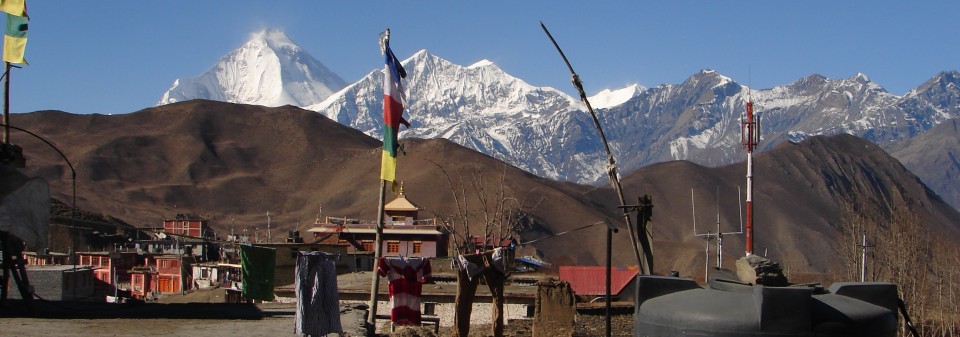Tags
Bangdladesh, CBA, ClImate negotiation, COP28, ICCCAD, IIED, Saleemul Huq

There are times when it feels like things align perfectly with each other for a reason. Last Sunday, on the 29th of October, I found myself unable to sleep in the early morning hours. And I did what I’m sure many of us do when we find ourselves awake at dawn, alone with our own thoughts—I got on my phone. At around 5 a.m., I received a text from my daughter which simply read “Are you awake?” I told her I was and as the three dots appeared telling me she was typing away, my mind jumped from one parental concern to another. Was she unwell? Or struggling with something? With these thoughts swirling in my mind, a new message from her popped up. And it said, “I have some tragic news, Dr. Huq passed away last night.” I felt the floor beneath me shift. I couldn’t believe what I was reading. Surely, this wasn’t true? But as she began sharing some more details, I felt a profound sense of loss that I still haven’t been able to put into words.
I first met Saleem in 2007 when I was invited to the first Community-Based Adaptation conference organized by the Bangladesh Center for Advance Studies and IIED in Dhaka. He was a senior fellow at the IIED and gave a lecture on the need for a community-based adaptation program to address emerging climate threats. Like everyone else present, and in fact, like everyone who was fortunate enough to meet him throughout the years, I was mesmerized by his presence and his depth of knowledge. He not only recognized the seriousness of the threat facing us but was able to articulate it in such powerful ways. The Community-Based Adaptation Conference itself became an annual event; the eighth iteration was organized in Kathmandu in 2014.
In the 17 years since then, I met him frequently at different workshops and meetings. And every encounter made me realize how receptive, helpful, and willing he was to listen. If you speak to anyone who knew him, you will hear that Dr. Huq was a giant in the field of climate change, a true visionary and stalwart. But you will also learn that he was a simple man; one with incredible depths of humility. Saleem was a researcher, an educator, an advocate, a leader, a communicator, an innovator, an icon in the field of climate change, and most importantly, a dear friend who will be missed immensely.
Perhaps his most remarkable efforts, beyond his contributions to the climate discourse which remain unmatched, were actually in promoting and developing the skills and knowledge of experts at home and in the region. He organized a series of trainings and workshops through ICCCAD, the institution he headed in Dhaka. One such series was on climate finance which was organized for three years from 2016 -2018, through which he enabled countries in the region and beyond to access global funds and mobilize domestic resources to fund climate actions. I had the opportunity to be a resource person in those trainings, sharing Nepal’s experience of tracking climate finance as well. Nepal’s experience of tracking climate finance in the national plans and budget helped our discussions. He always emphasized the need to bring people from around the world together through these training programs to make it possible for them to meet each other and share their experiences because there is a wealth of knowledge and experience in the Global South. We need only recognize it to help each other solve our common problems. In fact, what started in Nepal as a noble idea of tracking climate finance has been replicated in more than 35 countries around the world today in just 12 years.
Saleem deeply believed in the capacity of the Global South. And he has invested his time and effort in creating an entire new generation of climate experts and negotiators through ICCCAD. If Bangladesh is a global leader in the field of climate adaptation today, a major share of the credit goes to Dr. Saleemul Huq. When floods in Germany claimed more than 180 lives and destroyed property in 2021, he told journalists that Bangladesh could teach the developed world how to deal with floods because they had learned to deal with the frequent floods in the South Asian nation and had developed robust ways to address them. Furthermore, he never hesitated to criticize and reprimand the Global North and developed nations at global climate negotiations like CoP. Yet somehow, he not only commanded the respect of the very people who were on the receiving end of such remarks, they were also always happy to see him. They would talk about him with a fond smile. That’s what Saleem was like.
Words aren’t enough to describe how big of a loss this is for all of us. My heart is still heavy with grief and I know it will be for a long time to come. He was the most important ally we had and climate discourse will not be the same without his irreplaceable leadership. He was taken from us too soon and I, along with hundreds of others who knew him, mourn his passing. But let us also celebrate his life and work in the coming days. But as I sit here, writing these words, I am thinking of the friend I’ve had to say goodbye to. A good man with a kind heart. Someone who, despite his own busy schedule and countless responsibilities, always made time to ease the burdens of those who relied on him. You will be missed, my friend.
Madhukar Upadhya

